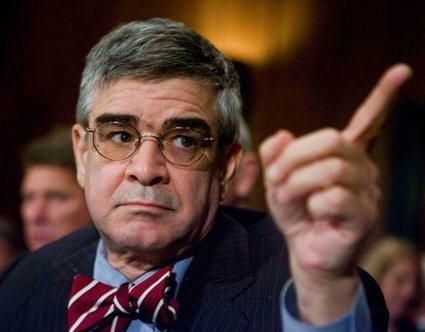Morici: The Fed Must Stop Quantitative Easing ASAP

A prominent economist is warning that the Federal Reserve can no longer justify its hemming and hawing over the inevitable increase in interest rates.
According to Dr. Peter Morici, a professor at the University of Maryland and a syndicated economics columnist, the Fed’s policies have created a lopsided environment that has created unequal parts of benefit and damage.
 “For several years now, borrowers have enjoyed low rates across the whole range of maturities, and this has distorted asset markets and economic growth by encouraging excessive investment and borrowing in some activities at the expense of others,” Dr. Morici explained. “For example, banks specialize in borrowing short (issuing CDs) and lending long (financing corporate debt and mortgages), and currently the spread between the five-year CD rates and 15-year mortgages is about 1.65 percent. Bankers need wider spreads on loans—up to three percentage points—to cover risks and earn a return on capital. Narrow spreads encourage more reliance on bank fees and riskier activities like speculation in commodity and foreign exchange markets.”
“For several years now, borrowers have enjoyed low rates across the whole range of maturities, and this has distorted asset markets and economic growth by encouraging excessive investment and borrowing in some activities at the expense of others,” Dr. Morici explained. “For example, banks specialize in borrowing short (issuing CDs) and lending long (financing corporate debt and mortgages), and currently the spread between the five-year CD rates and 15-year mortgages is about 1.65 percent. Bankers need wider spreads on loans—up to three percentage points—to cover risks and earn a return on capital. Narrow spreads encourage more reliance on bank fees and riskier activities like speculation in commodity and foreign exchange markets.”
On both Main Street and Wall Street, Dr. Morici added, the Fed’s policies have warped how business should be conducted.
“Cheap mortgages financed by Fannie Mae and other government lenders have fueled strong property appreciation in more fashionable neighborhoods of New York and other urban locales, even as half the homeowners in Atlanta and elsewhere remain underwater,” Dr. Morici continued. “Agricultural land values are similarly inflated. Cheap rates on high grade corporate bonds have inspired some firms to buy back stock with borrowed money, increasing their vulnerability during the next recession, and encouraged ordinary investors to purchase riskier junk bonds to obtain decent yields.”
Dr. Morici observed that drawing out Quantitative Easing is doing more harm than good for the mortgage market.
“The longer long rates are suppressed, the tougher it will be to get banks fully back into the mortgage lending business and lessen reliance on federally owned Fannie and Freddie,” Dr. Morici said. “And the greater will be the pain for property owners and savers who foolishly bought bonds issued by weak companies … As a legacy of Quantitative Easing, the Fed holds $2.3 trillion in Treasury and mortgage-backed securities with maturities of at least 10 years that it can gradually sell back to the public. To push up long rates along with the Fed funds rate, it may have to take that unprecedented action.”





